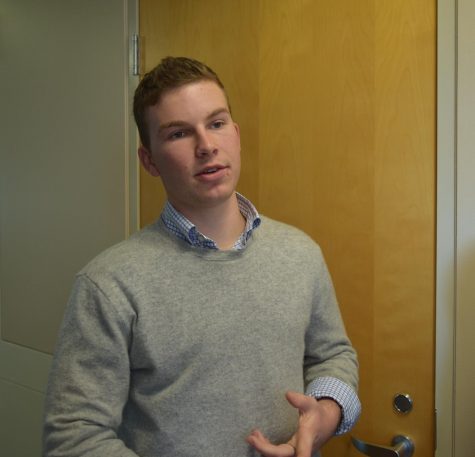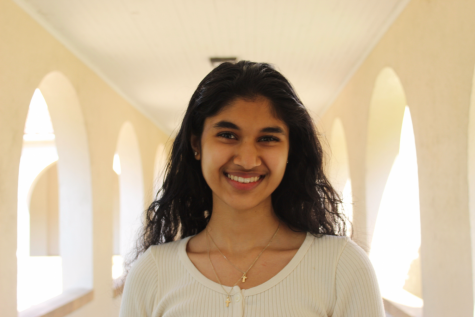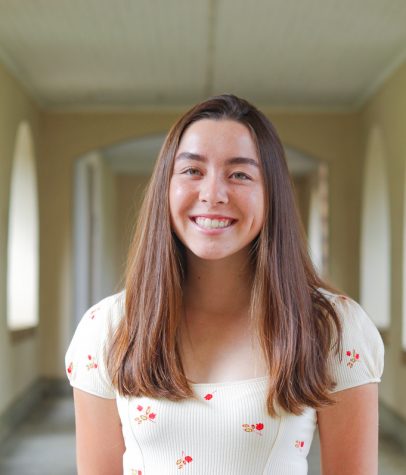Anti-vaping campaign kicks off tomorrow with student discussion
February 24, 2020

A plan of action to tackle the teen vaping epidemic sweeping the nation is moving forward at Palo Alto High School, starting with a student discussion during Tutorial tomorrow.
The Anti-Vaping Fishbowl Committee, a subsection of the Paly Associated Student Body, is to host the event Tuesday geared towards reducing student use of e-cigarettes, according to student school board representative and Paly senior Ben Gordon. The event, intended to be a fishbowl-style discussion, will feature developmental psychologist and Stanford Professor Bonnie Halpern-Felsher in the Performing Arts Center.
Gordon said the interactive event will involve Paly’s freshman class, highlighting student voices and interactions as opposed to a lecture or assembly to discourage one another from vaping.
“Peer-to-peer interactions are the most powerful stance that we can take,” Gordon said.
According to Gunn High School senior Ryan Li, a similar lecture by Halpern-Felsher was hosted at Gunn last month, and was met with a less-than-enthusiastic response from students.
“The lecture itself was really impersonal,” said Gunn sophomore Jessica Zang, who attended the Gunn assembly. “It didn’t change anything because people were just given information that they knew already.”
“We went in there, she talked, and it was really loud, people were talking over her,” Li said. “And they were kind of being rude to her.”
Gordon said he hopes to avoid a similar response from Paly students by increasing student involvement in the discussion.
“So, ideally, we’re shifting away from that lecture-based stuff of information that we already know,” Gordon said. “Instead of ‘Kids are vaping, here’s why you shouldn’t do it, here are the resources you have,’ and more of students talking to each other.”
In the 2017-2018 school year, 18% of 11th graders in the Palo Alto Unified School District had used an e-cigarette at least once, according to the California Healthy Kids Survey, up from 16% in 2015-2016. It’s no surprise then that local parents, teachers, and students alike are concerned about rising rates of e-cigarette use by youth and its impact on students.
According to the Center for Disease Control, an overwhelming majority of vape products sold in the United States contain nicotine, and though widely considered to be safer than smoking a cigarette, nicotine can have detrimental effects on the developing minds of adolescents.
“Nicotine and crystal meth are the most addictive substances that we know of,” pediatrician Kellen Glinder said at an anti-vaping meeting of community leaders at the Palo Alto Medical Foundation last month.
Gordon emphasized at last month’s meeting that in order to turn the tide on the exploding popularity of vaping, students must take responsibility and take action to discourage their friends from vaping.
“I feel that the biggest spot that we are missing out is the student-to-student or peer-to-peer interactions,” Gordon said. “When you’re hearing your best friend saying that this is a terrible idea, it can really change your mind. It’s these little comments that make a big difference.”
Elsewhere in the community, teen initiatives to drive change are picking up steam too. At the meeting, Castilleja senior Divya Ganesan and Paly senior Faisel Ojjeh, the president and vice president of the Palo Alto Youth Council, respectively, described the council’s plans to launch social media campaigns in an effort to connect with teens.
“Students aren’t responding as well as they should be to all the health warnings being released,” Ojjeh said. “If students are aware of how detrimental it can be, and they can warn their friends, that would be a big stoppage.”
Going forward, Gordon said he is ready to make progress in new ways for the benefit of Paly students.
“I’m excited that discussion on campus is starting to get rolling,” Gordon said.



